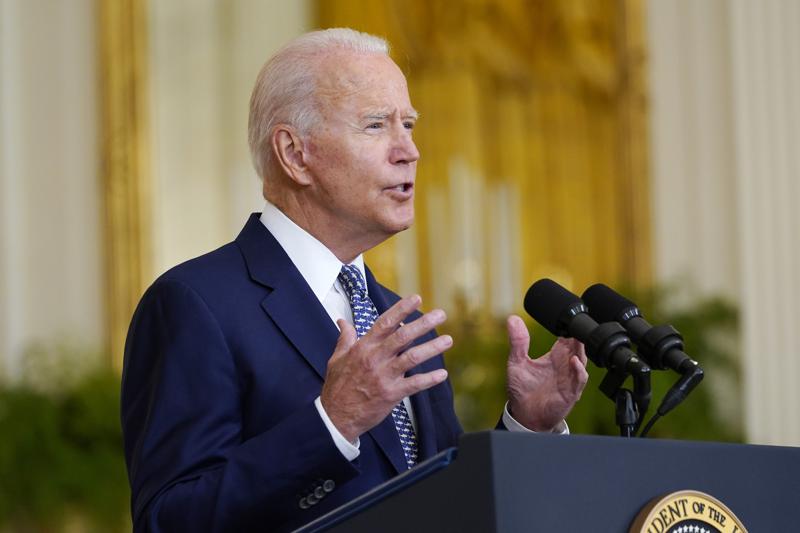

By Ava Schwartzapfel and Isabelle Brady
NEW YORK, NY – The Brennan Center released a report this past week in which it evaluated the Biden Administration thus far and how well it has stuck to its stated criminal justice goals.
In summary, the Brennan Center report determined though there has been notable progress made by the Biden Administration thus far, there is still large room for improvement and effort.
The report was divided into the categories “Little or No Progress,” “Limited Policy Changes” and “Notable Progress.”
Under “Little or No Progress,” the Brennan Center listed “revitalizing the federal clemency power” and “empowering the U.S. Sentencing Commission.”
With regards to clemency, President Biden promised during his campaign to “use the president’s clemency power to secure the release of individuals facing unduly long sentences for certain non-violent and drug crimes.”
But as of right now, President Biden has granted no petitions for pardon or commutation, said the Brennan Center.
To address this problem, the Brennan Center recommends the establishment of a permanent clemency review board with clear, transparent processes and a liberal use of the clemency power “to correct excessive sentences and other miscarriages of justice.”
According to the Brennan Center, “The executive’s pardon power is extraordinarily broad, and could serve as a powerful corrective to excessive punishment in the federal system generally, as well as a tool for righting specific wrongs.”
Likewise, the U.S. Sentencing Commission has the ability to “set the rules that help govern federal sentencing and conduct vital research on outcomes in federal cases,” but, said the Center, hasn’t had enough members to conduct business since 2019 and “Biden has yet to take any public steps to fill the vacancies.”
The Brennan Center recommends at minimum appointing enough members for a quorum and encouraging Congress to pass the Sentencing Commission Improvements Act, which would add an ex officio member with a background in public defense.
Prosecutors have been historically overrepresented on the commission, as well as in other federally appointed positions, said the Center.
In the “Limited Policy Changes” category of its report, the Brennan Center identifies the Bureau of Prisons, the use of the death penalty, and the use of for-profit detention centers as areas in which the Biden Administration has made minor progress.
In 2020, the Bureau of Prisons drafted a regulation that would have “severely undermined” a law designed to “improve access to classes, counseling, and other programming for those incarcerated in the federal system.”
The BOP regulation would have made it “all but impossible for imprisoned people to earn meaningful benefits from participation” in the First Step Act’s incentive program.
But on January 13, the Center notes, the Justice Department “publish[ed] a final rule that will ensure people are able to earn credits in a way more consistent with congressional intent.” Those credits will apply retroactively, making many people immediately eligible for prerelease custody or supervised release.
That said, said the Center, issues remain with shortages in prison programming and a risk assessment tool meant to “help determine when, among other things, people participating in programming can be transferred to pre-release custody such as a residential reentry center.”
In particular, concerns have been raised about the risk assessment tool’s possibility of racial bias.
The Brennan Center recommends completely rebuilding the risk assessment tool “in consultation with external stakeholders,” appoint a new, First Step-friendly director of the BOP when the current one retires, creating a BOP oversight body, and “funding a full build-out of rehabilitative programming in federal prison.”
With regards to the death penalty, the “DOJ has merely announced a moratorium on federal executions while committing to study the issue,” the Brennan Center said.
Biden’s Attorney General Merrick Garland has said that “Serious concerns have been raised about the continued use of the death penalty across the country, including arbitrariness in its application, disparate impact on people of color, and the troubling number of exonerations in capital and other serious cases.”
“Those weighty concerns deserve careful study and evaluation by lawmakers,” he added.
President Biden promised on the campaign trail to eliminate the death penalty, and the Brennan Center recommends that the president commute all federal death sentences to life without the possibility of parole and have the DOJ instruct all U.S. Attorneys not to purse capital punishment.
It also suggests President Biden urge Congress “to provide federal incentives for state and local prosecutors to avoid seeking capital punishment” and “champion the Federal Death Penalty Prohibition Act of 2021,” which would abolish the federal death penalty and have people sentenced to death before its enactment resentenced.
The Brennan Center focuses on the need to limit the Department of Justice’s reliance on “for-profit” detention center.
At the start of his term as President, Biden had issued an executive order demanding that the Justice Department cannot renew any of their contracts with for-profit corporations and firms, said Brennan Center, adding this was to attempt and prevent private facilities from being able to detain prisoners, including undocumented immigrants, as they do not provide the same levels of safety and comfort for the inmates.
The Center suggests various loopholes that have been opened by this executive order, such as local governments pairing with these for profit institutions and then working with the federal government, indirectly.
For example, the Center states, “since the company CoreCivic could not renew its contract with the U.S. Marshals Service (USMS) for 990 beds at the firm’s Northeast Ohio Correctional Center, CoreCivic instead entered an agreement with the local sheriff’s department, which then allowed people in USMS custody to stay there.”
To remedy this, the article suggests, Biden should focus on lowering the budget for ICE detention centers and detaining fewer people in immigration detention centers.
This would lessen the government’s reliance on for-profit firms to house those specific individuals.
Furthermore, Biden’s administration should examine Obama’s work with the Department of Homeland security— with the hopes of eventually passing a new executive order that would ban DHS from contracting with these for-profit firms directly.
The report then moves into areas of notable progress since Biden has been in office, starting with the relief for people on federal home confinement.
Thousands of people were at risk of being sent back to prisons after having been released to “federal home confinement” due to the Covid-19 pandemic. The original memorandum passed on this issue, during the Trump presidency, had these inmates being sent back when the pandemic “ended.”
Though many of the people in this position were completely compliant with their stay at home terms, they were still to be sent back.
Biden had no explanation for this aside from the fact that the order forced them to return, and that the terms only allowed for a select few to apply for clemency.
After months of determined, bipartisan advocacy, Biden declared that the return to prison would be determined on a case-by-case basis for each inmate affected.
The recommendations that the report gives to help speed up or smoothen this process includes that this decision making process be biased against reincarceration regardless of the circumstances.
Secondly, it is recommended that our federal government continue the designation of home confinement even after the pandemic— with utmost regard for public safety, of course.
The article then progresses to a section about nominations for U.S. attorney positions and federal judgeships, where they praised President Biden for his attention to diversity since taking his position in the office.
The report shares that “Biden’s 2021 judicial nominees were also roughly 65 percent people of color and 75 percent women. And they reflect a great breadth of experiences.”
Though this does show great progress, and Biden had listened to the public pressure to do as much, there is still much work to be done in this field, the report notes, suggesting Biden’s administration should also focus on diversifying the communities that these candidates serve, as well as their specific legal profession.
The Center also recommends that Biden seek to explain the number of senior federal law enforcement officers who pledge to strive to preserve public safety while also reducing mass incarceration and its collateral damage.
The fourth and final area where Biden’s administration is praised in this article is regarding their investment in community anti-violence programs.
This area of the analysis explains that Biden has made significant investments in CVI’s, or locally-led crime reduction initiatives called Community Violence Intervention organizations.
These programs encourage transitional job placement and outreach work within the community to distract from the violence. These efforts have historically lacked funding, and rely heavily on federal support.
In June, Biden’s administration allowed for $350 billion in state and local funding for these CVI’s.
While acknowledging this was a necessary and extremely well received investment, the Center said there is still more to be done, recommending President Biden expand the CVI collaborative beyond its pre-determined 18 month period and specific locations.
Brennan Center urged the Senate to pass a heavily debated Build Back Better Act along with a previously proposed $5 billion for the CVI’s, noting this money is vital for ensuring that these programs have the time and stable funding they need to succeed” the article states. 




